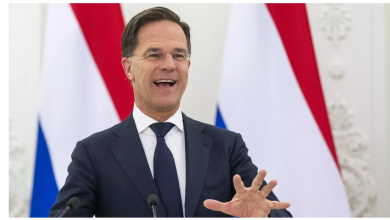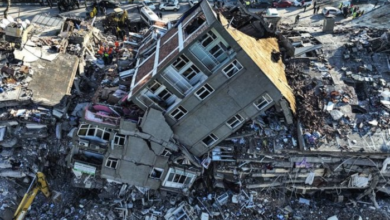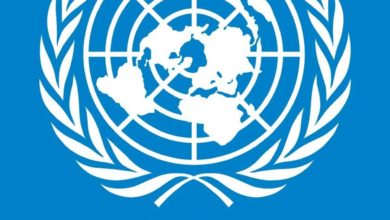WEST AFRICAN SUMMIT WITH POSSIBLE SANCTIONS AGAINST COUP IN NIGER

– A “special summit” of West African states is scheduled to be held in Abuja on Sunday to evaluate the situation in Niger following the military coup in the country. The summit may result in the imposition of sanctions, mirroring the measures taken by France and the European Union.
Pressure is mounting on the newly appointed strongman in Niger, General Abdoul-Rahmane Tinawi, who led the coup and is behind the detention of President Mohamed Bazoum for the past four days.
The Economic Community of West African States (ECOWAS), comprising 15 countries, may announce sanctions against Niger, one of its member states, following the lead of France and the European Union, which have already suspended budgetary and security assistance, in addition to not recognizing the “authorities” that emerged from the coup.
Nigerian President, Buhari, who currently chairs ECOWAS, condemned the coup on Wednesday and pledged that the community and the international community would “make every effort to defend democracy” and “root it” in the region.
France’s development aid to Niger amounted to 120 million euros in 2022. It was expected to be slightly higher in 2023, but the French Foreign Ministry stated that it will not be sent to the country.
The African Union has given the coup leaders 15 days “to restore constitutional order.”
US Secretary of State Antony Blinken assured Bazoum of Washington’s “steadfast” support, emphasizing that the coup threatens “the partnership between the United States and Niger.”
On Sunday, Buhari spoke with Tinawi, expressing his “deep concern” and praising the efforts of the Nigerian President “to restore constitutional order in Niger,” according to Matthew Miller, a spokesperson for the US State Department.
Niger is located in the heart of the Sahel region and is one of the poorest countries in the world. The country includes vast desert regions and has one of the highest population growth rates globally.
Niamey is France’s last ally in the region, and the two countries maintain a “combat” partnership against jihadists in this region plagued by instability and attacks.
France currently deploys around 1,500 troops who have been working jointly with the Nigerien army.
The civil movement “AME26,” which previously demonstrated against France’s Barkhane operation in the Sahel and the Sahara, called for demonstrations on Sunday, despite the ban on gatherings.
General Tinawi, who was appointed by the military as the country’s leader, justified the coup by citing the “deteriorating security situation.”
With “appreciation” for the “external” support from Niger’s partners, especially France and the United States, which also deploys 1,100 soldiers, he requested their “trust in the defense and security forces” under his command.
Western partners strongly condemned the coup, as did several African countries and the United Nations, calling for the release of Mohamed Bazoum.
Critics of Bazoum accused the coup of serving “personal interests,” asserting that the President is in “very good condition” despite his detention.
The Nigerien history, rich in uranium, has been marked by coups since its independence from French colonial rule in 1960. The region also witnesses instability, as Niger is the third country to experience a coup since 2020 after Mali and Burkina Faso.
Days before Independence Day on August 3rd, relative calm prevailed on the streets of Niamey on Saturday after the ban on demonstrations in support of the coup leaders.
Residents resumed their usual activities, but defense and security forces increased their presence on the streets, as reported by a journalist from Agence France-Presse.
The military group, comprising all branches of the army, the gendarmerie, and the police, suspended the institutions’ work, closed land and air borders, and imposed a curfew from midnight to 5 a.m. local time. — AFP






